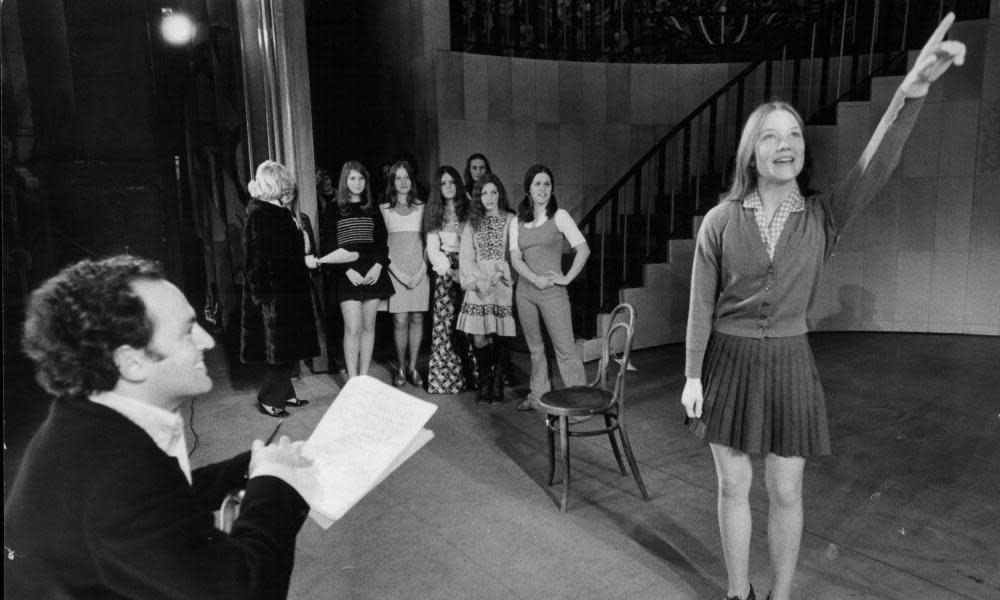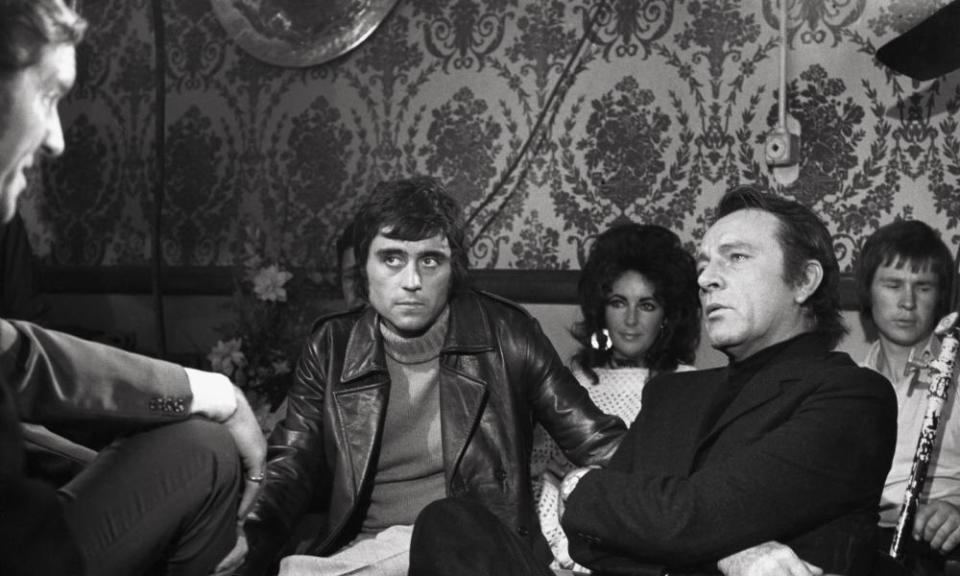Michael Tuchner obituary

The British television and film director Michael Tuchner, who has died aged 82, left a body of work that vividly reflected life in the UK and US during the 1970s and 80s. As Tuchner was an unshowy man who allowed the performances and narrative to dominate a film, his contribution often went unsung, even though he made more than 40 television and big screen movies. Nevertheless, after his debut feature, Villain (1971), starring Richard Burton, he was always considered a safe pair of hands by producers and was nominated for four Bafta awards, winning one for the acclaimed BBC Play for Today production of Jack Rosenthal’s Bar Mitzvah Boy (1976).
Tuchner was born in Berlin, the son of Martin, a tailor, and his wife, Rosa (nee Wolochwiansky). When he was seven, the family moved to the UK, just as the last remaining Jewish enterprises in Germany were being shut down by the Nazis. After the second world war the family settled in Manchester and Tuchner was awarded a scholarship to Manchester grammar school. He studied classics at University College London and was the president of the film society there, before joining the BBC as a trainee editor on the Tonight programme. He moved up to be a full-blown editor and director alongside Jack Gold and Kevin Billington, and worked on a number of television documentaries, many of which featured the BBC’s roving reporter Alan Whicker.
Tuchner then directed two works in The Wednesday Play series – Sling Your Hook (1969), starring Michael Bates, and The Hunting of Lionel Crane (1970), with Robert Powell. Following in the naturalistic tradition of Mike Hodges’ Get Carter, Villain was a gritty crime thriller with excellent location work in London, including a gripping heist sequence. In it Burton played with relish a sadistic, snarling, gay gangster whose cockney accent had to be dubbed for baffled American audiences in the US release. So violent was Burton’s character, modelled on the East End crime boss Ronnie Kray, that, according to the publicity, “by the time he’s ready to kill you, it’s an act of mercy”.
Continuing in action mode, Tuchner directed Fear Is the Key (1972), based on an Alistair MacLean novel. Mainly shot in Louisiana, it featured a spectacular 13-minute car chase with the hero (Barry Newman) driving a Ford Gran Torino. Mr Quilp (1975) was a cheery musical version of Charles Dickens’ The Old Curiosity Shop, providing a vehicle for Anthony Newley in the title role of the evil, misshapen moneylender.

Tuchner’s Likely Lads film (1976) was a cut above most spin-offs from television comedy series. However, although it starred the same leads, James Bolam and Rodney Bewes as Geordie best mates, and had the same writers (Dick Clement and Ian La Frenais, who also wrote Villain), the inflated sequel could not but suffer in comparison with the popular small-screen version.
At the same time Tuchner directed several works in the Play for Today series (1974-76), including Bar Mitzvah Boy, a bittersweet comedy about the anxieties of a young working-class Jewish boy from north London approaching his big day.
Despite having moved to Los Angeles in 1978, when he claimed to have been “the hottest director in Hollywood for 15 seconds”, Tuchner continued to work in the UK, where he made the Emmy-nominated television movie, Summer of My German Soldier (1978), a touching love story about an American teenage girl and a German PoW set in the second world war. He also made two episodes of Tales of the Unexpected (1979), introduced by Roald Dahl, who wrote the short stories on which the series was based.
Tuchner was kept busy in the 80s directing television movies such as The Hunchback of Notre Dame (1982), with Anthony Hopkins impressive in the title role. The actor’s make-up alone, which took five hours each day to apply, was worth applause. Among Tuchner’s other notable television dramas, many of which dealt with social issues, were Not My Kid (1985), with George Segal as a doctor dealing with drug-addicted teenagers, and Amos (also 1985), with Kirk Douglas as a rebel in a nursing home.
In 1989 Tuchner returned to the big screen with Wilt (known as The Misadventures of Mr Wilt in the US), a witty black comedy skilfully adapted from Tom Sharpe’s novel and starring Griff Rhys Jones and Mel Smith. In it Tuchner proved once more that he knew how far to go too far, particularly in a scene where Rhys Jones appears to be having sex with a lifesize, inflatable plastic doll. Nothing if not eclectic, Tuchner’s last feature was Back to the Secret Garden (2001), a charming sequel to Frances Hodgson Burnett’s classic children’s book.
He is survived by his second wife, Dina Eaton, and by two children, Rebecca and Jonathan, from his first marriage, to Gillian Barton Cook, which ended in divorce.
Ronald Bergan
Michael Apted writes: In an unusual way, Michael Tuchner and I were kindred spirits, both happy to move between drama and documentary. He did very well at it, and through the rough and tumble he never lost his sense of humour and his love of life. I can still hear in my mind his penetrating laugh, which was mostly engaging, occasionally annoying.
We worked side by side, competed with each other and fought for the same material. But the only time there was any bad blood between us was when we talked football. That, I suppose, is par for the course for English males.
• Michael John Tuchner, film and television director, born 24 June 1934; died 17 February 2017

 Yahoo News
Yahoo News 
